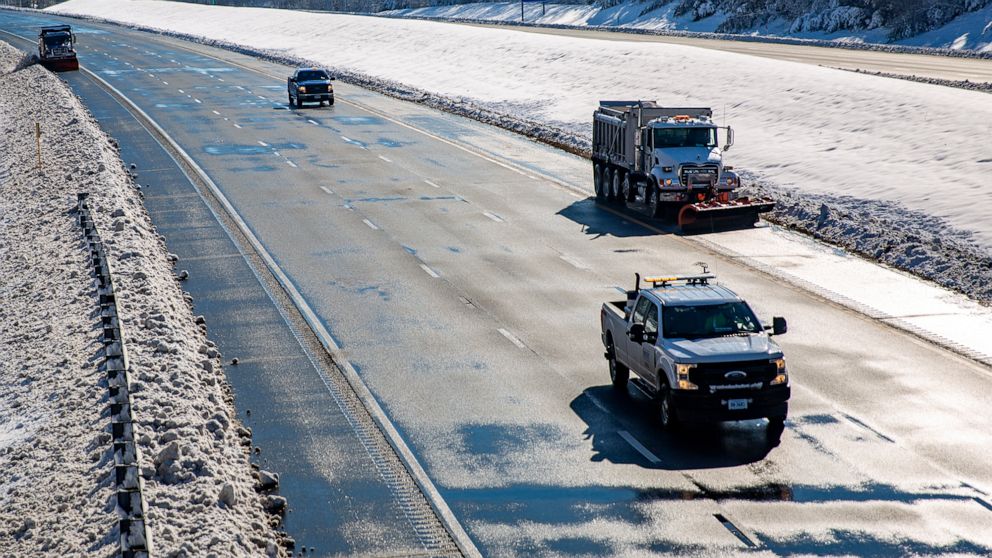Millions of Americans under winter weather alerts for storms, arctic blast
More than 100 million people across the United States are on alert this week for heavy snow, brutally cold temperatures, gusty winds and icy conditions.
As of Wednesday afternoon, the National Weather Service has issued various advisories, alerts, watches and warnings for 38 states -- from Washington to New York -- related to two winter storm systems.
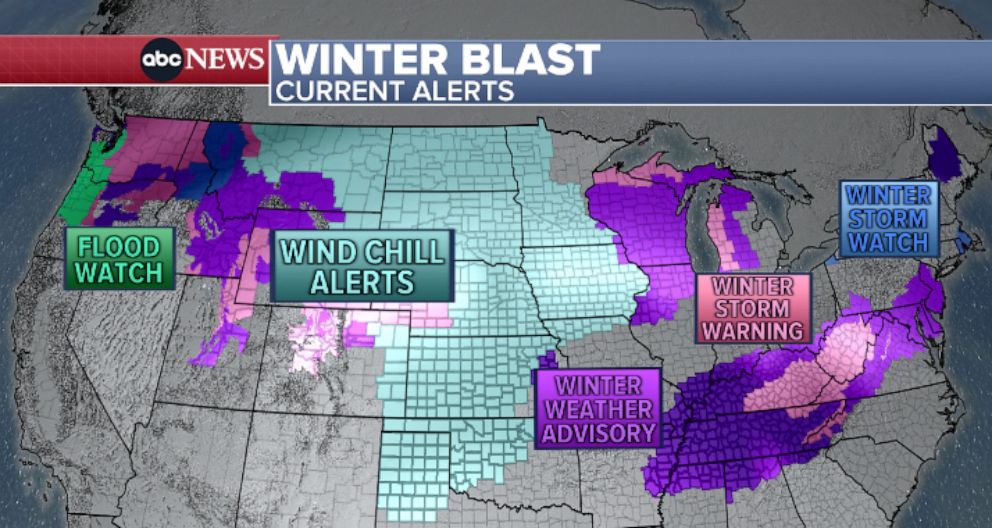
The first is currently in the Upper Midwest region, bringing snow and wind across the Northern Plains and Great Lakes. The second is in the Pacific Northwest and Northern Rocky Mountains, bringing rain and wind to the West Coast and heavy snow to the nearby mountain ranges, from the Cascades to the Rockies. This storm could reach the East Coast by Friday morning, bringing more snow to the areas along Interstate 95, one of the busiest travel corridors in the country.
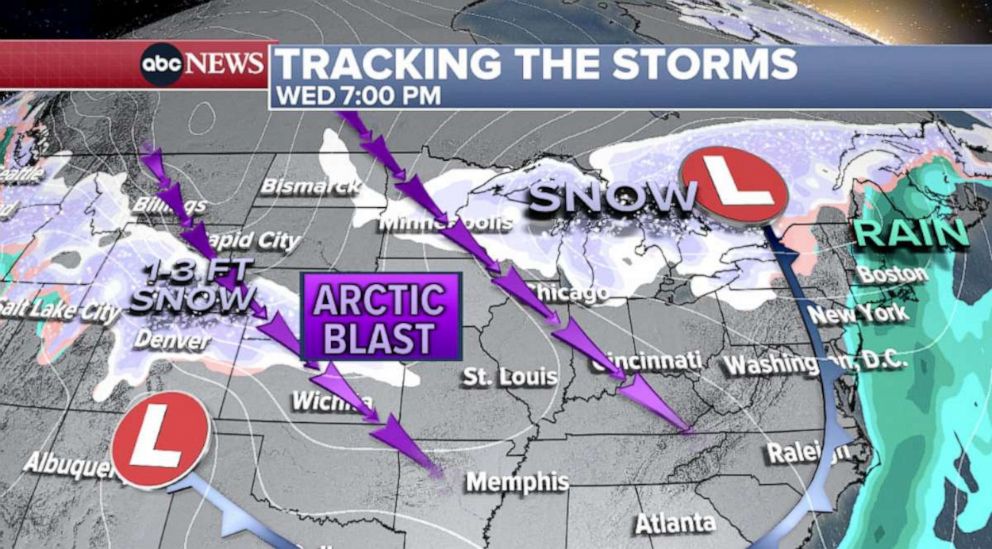
On Wednesday, the first storm will continue to sweep the Great Lakes region, with the heaviest snowfall in parts of Wisconsin, Michigan and western New York. A frigid arctic blast with wind chill temperatures well below zero degrees Fahrenheit will move in behind it, according to the latest forecast. As the cold front swings through the East, temperatures will be mild enough to keep most precipitation in the form of rain showers across the Northeastern states.
However, drizzles of freezing rain are possible Wednesday morning from eastern Virginia to Connecticut before likely changing to rain showers by mid-morning due to warmer temperatures. This could create icy road conditions for morning commuters.
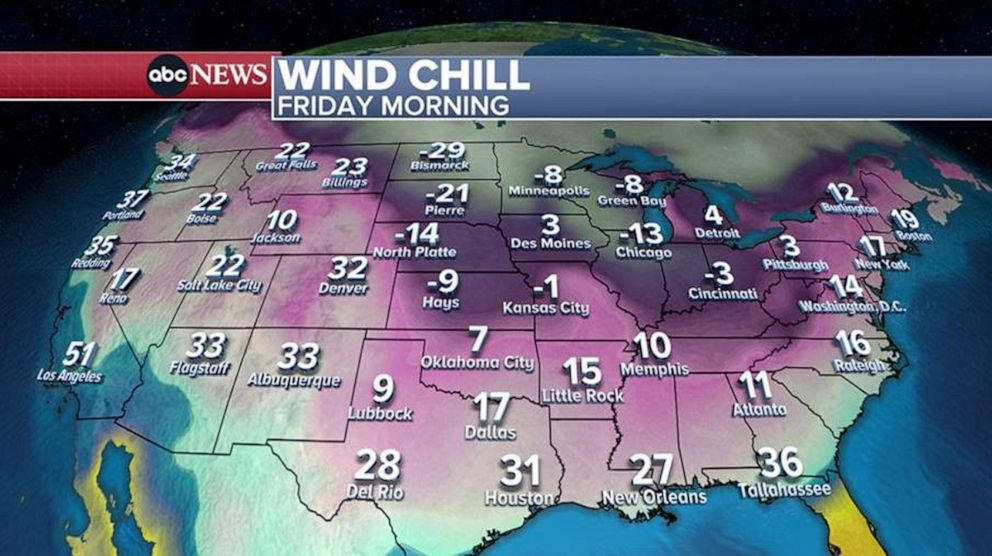
Meanwhile, the second storm will continue to move from West to East across the Rockies, with heavy snow in the mountains and gusty winds hitting Wyoming and Colorado. The system may redevelop in the Southern central states on Thursday, according to the latest forecast. Both long-term storm models, European and American, are predicting snow across the Northeast region on Thursday night into Friday morning.
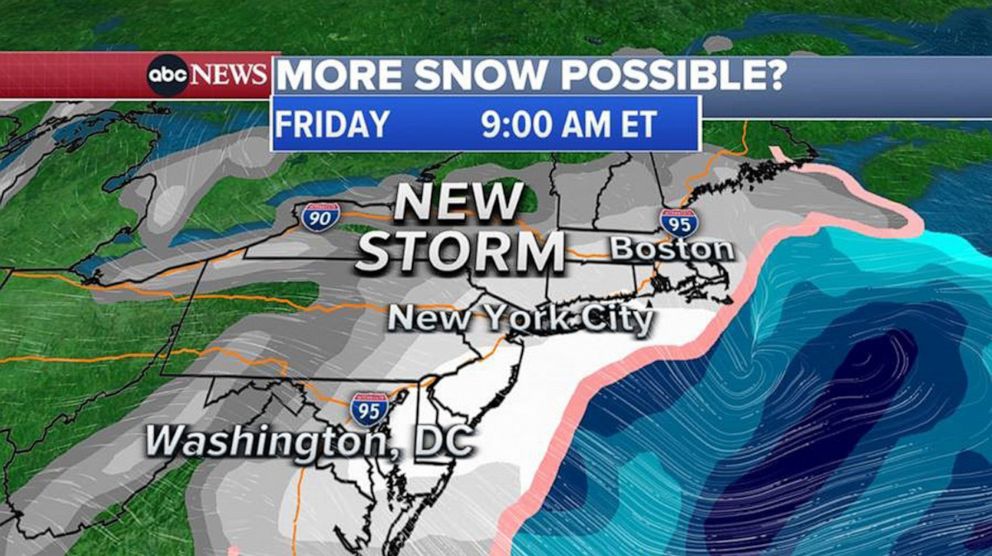
Hundreds of people were stranded in a massive traffic jam across a 48-mile stretch of Interstate 95 in Virginia, following a multi-vehicle accident that occurred Monday afternoon amid a heavy snowstorm. Virginia Sen. Tim Kaine told ABC News it took him almost 27 hours to drive from his Richmond home to the U.S. Capitol building in Washington, D.C. I-95 in Virginia reopened Tuesday night at about 9 p.m. local time, after being closed for emergency response for most of the day.
